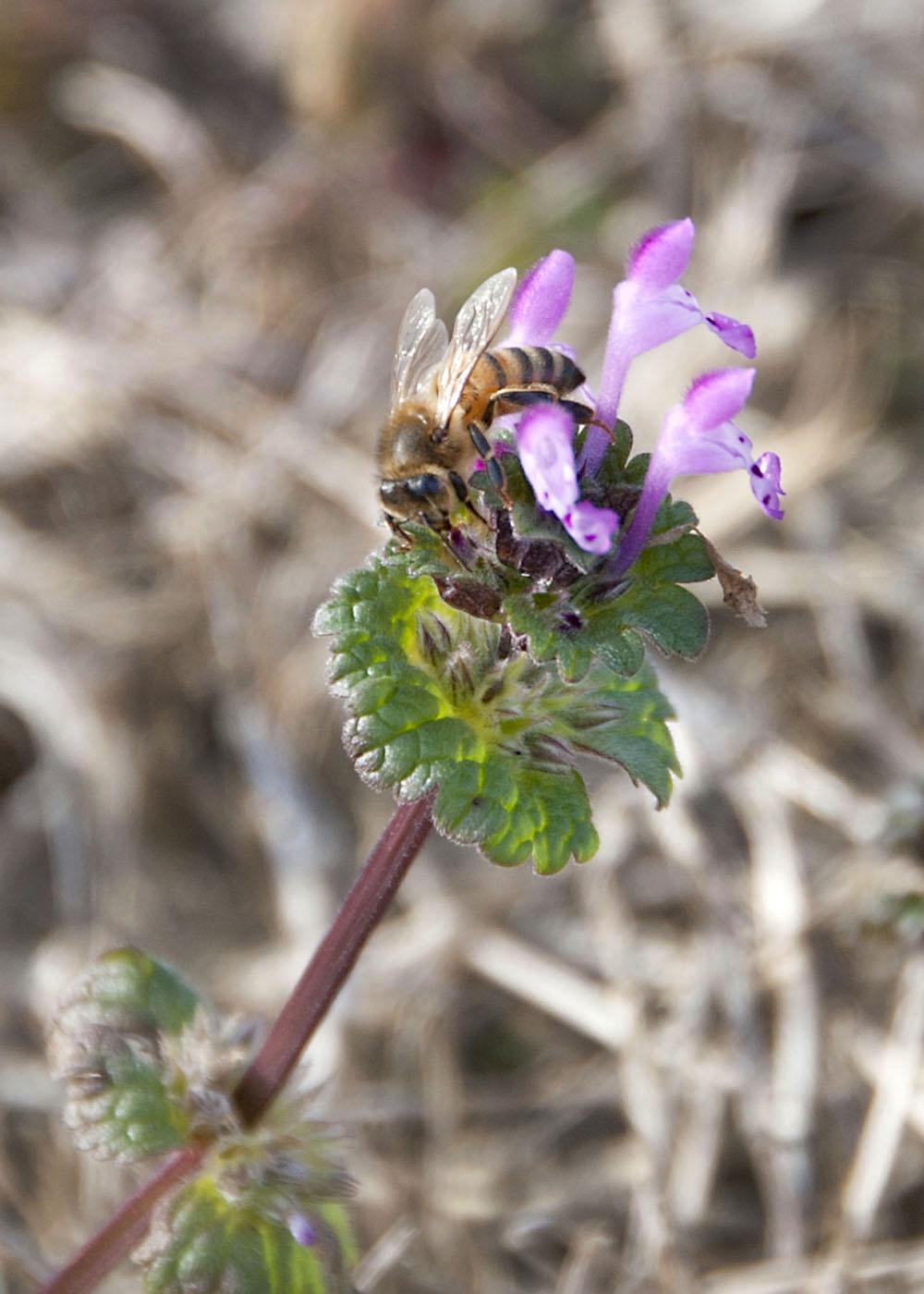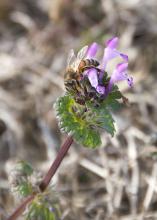Information Possibly Outdated
The information presented on this page was originally released on February 23, 2012. It may not be outdated, but please search our site for more current information. If you plan to quote or reference this information in a publication, please check with the Extension specialist or author before proceeding.
Warm winter has bees buzzing early
MISSISSIPPI STATE – Warm weather in January and early February is causing honey bees to be active before they have enough food to eat, and the state’s beekeepers need to monitor colonies for starvation, a Mississippi State University expert said.
“Contrary to what many people think, bees do not hibernate in winter,” said Audrey Sheridan, research associate in MSU’s Department of Biochemistry, Molecular Biology, Entomology and Plant Pathology. “They remain in the hive, clustered together, until the outside temperatures are above 54 degrees Fahrenheit. They are not reproducing during this time, but they are consuming energy to maintain a constant temperature in their cluster. The honey and pollen they saved from the summer keeps them alive through the winter.”
Warm weather stimulates some plants to bloom and generate pollen, which in turn stimulates the queen to start laying eggs earlier than she normally would, Sheridan said. If there is a freeze, those plants could be killed, and that food source would not be available to the developing bees.
“With an increase in the demand for food, the bees are flying more to forage, and since there is little nectar available, they’re rapidly consuming honey,” she said. “They could easily run out of honey before the spring nectar flow begins.”
Harry Fulton, former state entomologist with the Mississippi Department of Agriculture and Commerce and secretary-treasurer for the Mississippi Beekeepers Association, said henbit and yellow buttercup are in bloom, and maple, elm and cedar trees are blooming early.
Normally the colonies in central and north Mississippi do not gather enough nectar to sustain themselves until mid-March, he said.
“In other words, they are consuming more than they are gathering until that point,” he said. “Combined warm weather and pollen supply is causing bee colonies to be three to four weeks ahead of schedule in spring build-up,” Fulton said. “The disadvantage is that unless beekeepers really stay on top of things and keep track of food stores, colonies could quickly starve to death with all the young bees hatching to be fed, along with all the brood being raised.”
Brood refers to the egg, larva and pupa stages of the bee’s lifecycle, before it emerges from the cell as a young bee. Typically, cold weather prevents the queen from laying a lot of eggs because they cannot be kept warm enough to survive when the colony clusters for warmth. The uncovered areas of brood will die.
“Any sudden cold spell like we had in mid-February could set them back, but since it only lasted two days, the colonies weren’t harmed beyond some brood loss,” he said.
The first sign of starvation bees dragging out partially eaten brood, he said.
“Inspect the hive and any time a colony has two frames or less of stored honey, it should be fed,” he said.
Beekeepers should limit feeding to candy boards or sugar syrup in inboard feeders or hive-top feeders directly above the cluster, Fulton said. Avoid using an entrance feeder unless it is warm enough for bees to be flying. In an emergency, beekeepers should sprinkle dry sugar on top of the frames.
If warm temperatures continue, the spring flow may be earlier, as some nectar-producing plants, especially various types of clover, could bloom ahead of schedule.
This unusual activity may lead some beekeepers to consider splitting their hives early, but they should note that queens or commercially produced queen cells may not be available.
Sheridan, who works for the Extension Service and the Mississippi Agricultural and Forestry Experiment Station, said beekeepers have valid concerns about the weather’s impact on the usual schedule of colony development and the availability of package bees and queens.
“Considering that most queen producers have scheduled their activities months in advance, beekeepers may not be able to get the queens they need this early,” she said.
If hives are strong early, beekeepers should routinely check for swarm cell production and manage their colonies regardless of the weather.
“If crowded, bees could still swarm on days when the weather is suitable for flight,” Fulton said.
Proper management is the key to successful beekeeping, Fulton said.
“With such a warm January and February, it looks like beekeepers in central and north Mississippi are in for a great year if they can keep their colonies fed and healthy until April,” he said. “As for southern Mississippi, the bees should already be making and storing lots of honey from spring titi, a tree with white flowers that normally blooms in February. Their season normally runs about a month ahead of the northern part of the state.”
The National Oceanic and Atmospheric Administration reported the state’s average temperature for January was 50.7 degrees, the 15th warmest January on record.





